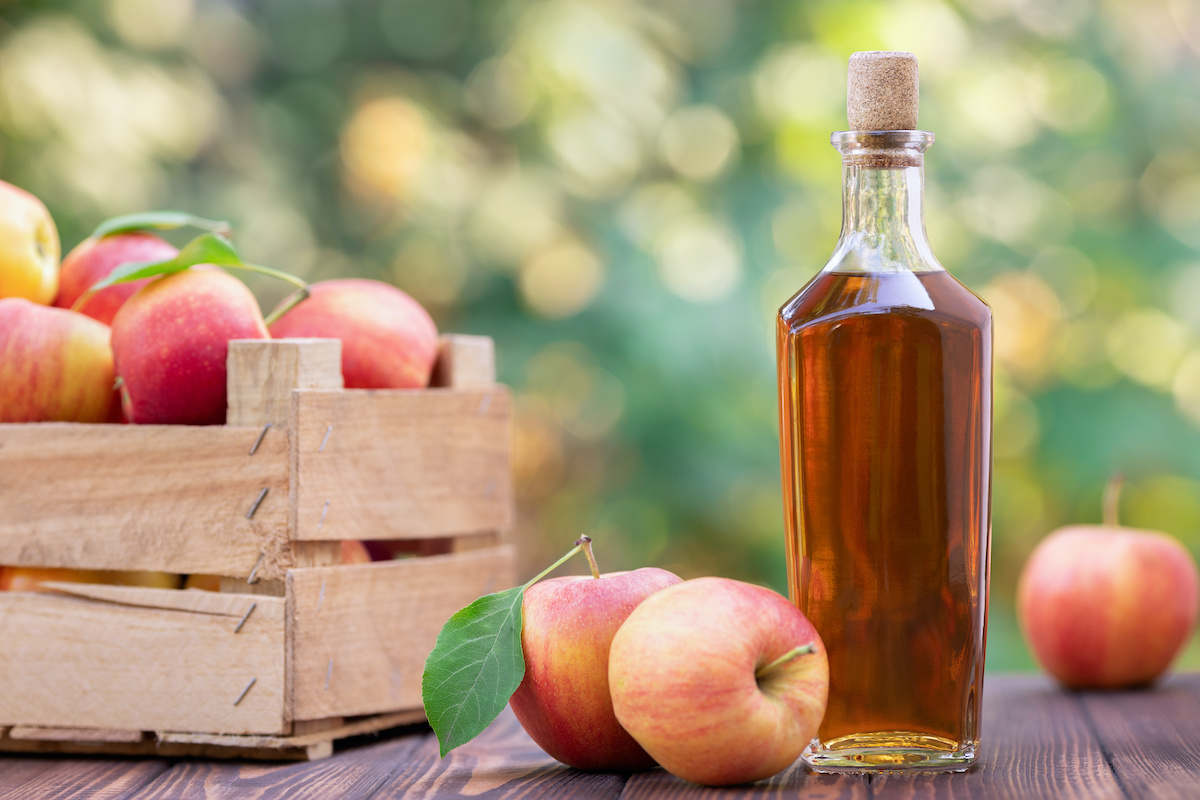Apple cider vinegar is an ancient remedy made from fermented apple juice that has been used for thousands of years to alleviate many conditions and ailments. You’ve probably heard of apple cider vinegar for things like cleaning, soothing a sore throat, and lowering blood sugar, but did you know that it may help relieve an ear infection as well? Read on for our favorite ways to use ACV for ear infections and a few other helpful hints.
Ear infections are usually caused by bacteria, fungi, or viruses developing in the outer or middle ear. Though they are more common in children, adults can experience ear infections as well. Regardless of whether you or your child is suffering from an ear infection, it is vital to take action and help the body eliminate the virus. Here are a few signs you may have an ear infection:
- Earache
- Inflammation and swelling
- Pain and tenderness
- Hearing changes
- Nausea
- Vomiting
- Diarrhea
- Dizziness
- Headache
- Fever
Before you put anything in your ear or in your child’s ear, you need to understand precisely what it is and make sure that it’s safe. Apple cider vinegar is a viable at-home natural remedy that, when used properly, could help alleviate pain and loosen blockages. Plus, ACV contains acetic acid, an antibacterial compound that can help kill fungi, bacteria, and viruses inside the ear.
Keep in mind, if you suspect you have a middle ear infection, it is best to see a doctor and avoid self-treatment. Apple cider vinegar should only be used for outer ear infections, also known as swimmers’ ear.
How to use:
- In a small dish, mix 1 part apple cider vinegar to 1 part rubbing alcohol. Be sure to use ACV with “the mother”
- Use a clean syringe or dropper to place about 5-10 drops in your ear and cover the ear with a clean cloth.
- Lay on your side to allow the drops to sit in the affected ear for about 1 minute and then transfer to the other side with the cloth under your ear so that the drops can come out.
- Repeat as often as needed to alleviate a mild earache or outer ear infection.
This remedy is best for those who are experiencing a repeat infection as they will usually be able to recognize the symptoms and treat it quickly. If it is a first-time infection, it could have progressed too far and may need to be treated with antibiotics.
If you have a sore throat or a cold or flu along with an ear infection, try gargling with a mixture of equal parts ACV and warm water for about 30 seconds. This may help soothe your throat and could indirectly ease ear infection symptoms. Always brush your teeth after rinsing with ACV.
Note:
Discontinue any at-home remedies and see a doctor immediately if symptoms do not cease within three days. See a doctor if ear discharge, fever, or loss of balance occurs along with an earache.
Other benefits of ACV
Help you feel full
Drink ACV diluted with water to help staunch your appetite and reduce your cravings for unhealthy foods. This could also be beneficial in aiding weight loss efforts since you won’t be tempted to eat as much.
Deodorize stinky things
Mix ACV and water in a spray bottle and use it on smelly areas in the home to help deodorize and freshen. Add a few drops of your favorite essential oil for an even better odor-busting power. Try a foot soak with ACV, water, and Epsom salts to rid your feet of odor-causing bacteria.
Facial toner
To avoid burning your face, never use undiluted ACV on your skin. Instead, mix 2 or 3 parts water with one part ACV and apply to the face with a clean cotton pad to help clean pores and even skin tone. Use after cleansing face. This is particularly helpful for oily or combination skin. Follow with a moisturizer.
Hair rinse
Use a 1 to 1 mixture of apple cider vinegar and water every few weeks to cleanse hair and gently strip away product buildup. Use on wet hair and continue with normal shampoo and conditioner routine.
Fruit and veggie wash
Rinsing fruits and vegetables with ACV could help remove certain dangerous bacteria such as salmonella and E. Coli. It may also be more effective in eliminating harmful pesticides and herbicides compared with plain water.
-Susan Patterson, Certified Health Coach, and Master Gardener



